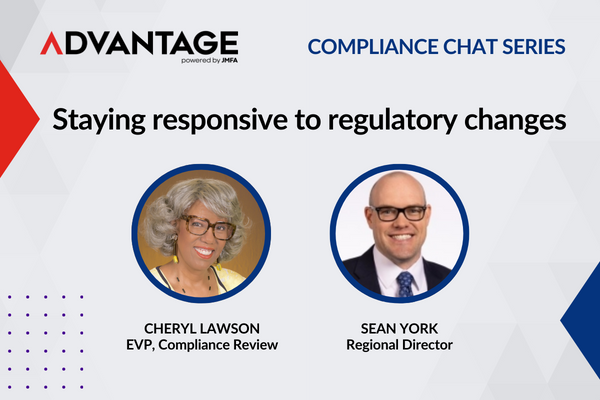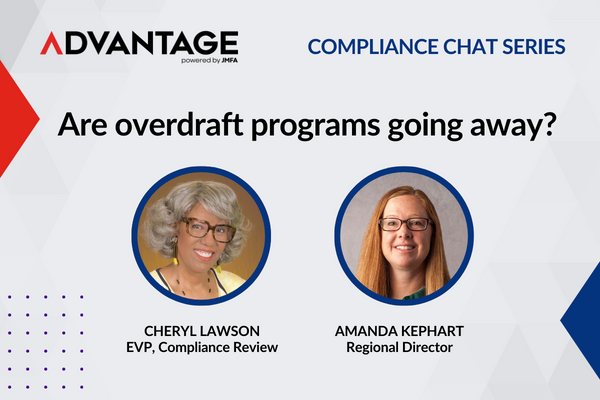
Three Things to Know About Recent Overdraft-Focused State Bills
Categories:
Changes to the overdraft landscape are being made in various states and warrant attention. While Washington’s changes get national coverage, these state bills are also important. Here are several recent legislative actions concerning overdraft programs and related banking services.
California State Senate Bill 1415: Adds a section to the Financial Code requiring banks and credit unions subject to the examination authority of the Commissioner of Financial Protection and Innovation to report annually the amount of revenue earned from overdraft fees and non-sufficient funds (NSF) fees and the percentage of revenue as a proportion of the net income. The first of these annual reports are due on March 1, 2023, reflecting 2022 revenue. (Approved by governor; law amended.)
Connecticut State House Bill 5216: Requires financial institutions make available to Connecticut consumers a low-cost bank account that, among other things, does not include overdraft or NSF fees. The bank account must be available by July 1, 2023, and should provide the core features set forth in the Bank On National Account Standards. New York and other states may serve consumers who live in Connecticut. (Signed by governor; effective January 1, 2023.)
- : Requires a written notification of overdraft fees charged be provided to certain account holders every 180 days. As written, consumers who had overdraft fees would be given a report of the dates and amounts of overdraft fees; the total amount charged; information on the ability to negotiate fees; and a telephone number and full contact information for a representative of the financial institution responsible for resolving any matter relating to such fees. (Vetoed by governor.)
Here are three key takeaways from these developments:
1. Legislation surrounding overdrafts is a moving target.
Federal and state legislative efforts have turned their focus to overdraft and non-sufficient funds fees. At the end of the day, it’s about making sure that financial services like overdraft programs are fair and helpful, not harmful, to consumers.
While there has not been any national legislation passed, and the aforementioned bills are the first state legislative efforts we’ve seen, overdrafts have continued to be a trending issue. If the details, rules and/or language change—through the passage of bills or updated regulatory guidance—it could impact your bank or credit union operations.
2. Consistently use industry best practices to stay ahead of the changes.
Emphasis on transparency is at the core of the best overdraft solutions. Delivering a solution that provides clear disclosures and occasionally re-discloses as changes occur keeps the overdraft program compliant. Periodic re-education enables consumers to feel comfortable and know what to do and whom to call. Does your overdraft solution provide a library of searchable reports to respond to legislative analysis requirements quickly? If changes are required, they should be easy for your team to implement without adding too much to their workload.
3. JMFA partners will always be ahead of the curve.
It takes reliable resources to monitor current events and ensure that your financial institution is heeding all rules and best practices. An easier option is partnering with JMFA, which provides the industry’s only 100% written compliance guarantee for all state and federal regulations.
What does that mean? JMFA takes action — likely before an institution is even aware of the issue. In the case of the aforementioned bills, we advised our clients that would be impacted by the bills. We regularly distribute updates not only to inform but provide precise direction on how to address changes and reduce risk for financial institutions.
As a partner with an ear to the ground on important issues like these, JMFA is at the ready when even murmurs of changes crop up. That gives clients peace of mind and minimizes the workload of a financial institution’s staff.
For a consumer-first, 100% compliant overdraft solution—guaranteed!—contact the experts at JMFA at 800-809-2307.
________________________________________
ABOUT THE AUTHOR
Cheryl Lawson has more than 30 years of experience in information technology and financial operations, as well as consulting, communications, training and project management. She serves as JMFA’s principal compliance liaison for regulatory requirements of overdraft services, including consumer protection issues, and strategies that enhance safety and soundness.To learn more about how to get more how to deliver a compliant and consumer-friendly overdraft service, contact us.




